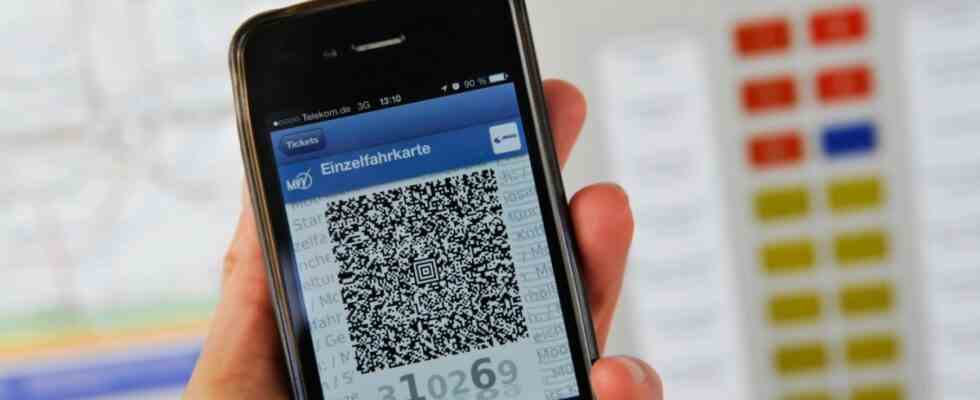The connection of the rural area to the local public transport still poses problems for the district of Munich with its heterogeneous structure – especially in the south. Now the small Straßlach-Dingharting in particular is to be connected even better to public transport, with a call taxi, which is to link the community with Schäftlarn and Oberhaching and the local S-Bahn trains from 2024. What may sound like a rather non-binding offer for the citizens of the southern district is to become a fully digitized system that can also be booked via the MVV app.
According to the Munich district office, the so-called on-demand traffic is to be set up on the route from Schäftlarn via Straßlach-Dingharting to Oberhaching. If you want to book the bus, you can do so with a minimum advance notice of one hour. According to the authority, the connections to the S-Bahn in Schäftlarn and Deisenhofen should be taken into account when designing the timetable in order to reduce time lost when changing trains. Stops will also be created in Oberbiberg and Gerblinghausen, for example, in order to access the express bus lines that operate there.
The buses are to be introduced later with alternative electric propulsion being introduced later
The municipality of Oberhaching and its mayor Stefan Schelle (CSU) initially suggested electrifying the new line right from the start and, most sensibly, charging the vehicles inductively. However, according to the district office, this is not possible in the short time until the introduction of the new offer. In the medium to long term, however, this should happen. The route is to be driven with three vehicles, each of which can accommodate up to seven commuters, and a bus will also be barrier-free. When asked by district councilor Markus Büchler (Greens) in the mobility committee of the district council why not all three minibuses were made barrier-free, the administration objected that one bus was enough because it could be used as needed.
This flexibility should also be reflected in the journeys themselves. The district office assumes that demand will initially be rather low, but this does not only have disadvantages. Because in the rarest of cases, the bus will stop at all stops in the three communities, which will significantly reduce the travel time.
The connection to the Deisenhofen train station and the school campus there is also particularly important.
(Photo: Sebastian Gabriel)
Nevertheless, Schelle emphasized the importance of the call taxi for the southern district – especially for schoolchildren. “Strasslach-Dingharting has now joined the Deisenhofen association and now students can be brought back relatively flexibly – including high school students,” said the mayor of Oberhaching and CSU parliamentary group leader in the district council. “And that’s exactly why you need a reliable bus connection.” According to Schelle, this is given at noon with booster bosoms, but not at other times. And in any case, after three or four years, it must be clarified whether this is a sensible connection to public transport. “Then we’re smarter.” The cost of the project is estimated at around half a million euros.
Support for the new project also came from the Greens. Nevertheless, their district council and member of the state parliament Büchler was a bit irritated. Because only a few days earlier, the district had also introduced the so-called on-demand system Flex in the south-eastern district. As part of a pilot project, seven minibuses serve several municipalities day and night, and trips can also be booked via the app. When Büchler asked why Straßlach-Dingharting had not been integrated into this system, the administration said that experience with two different programs should now be gained in order to possibly combine both later.

